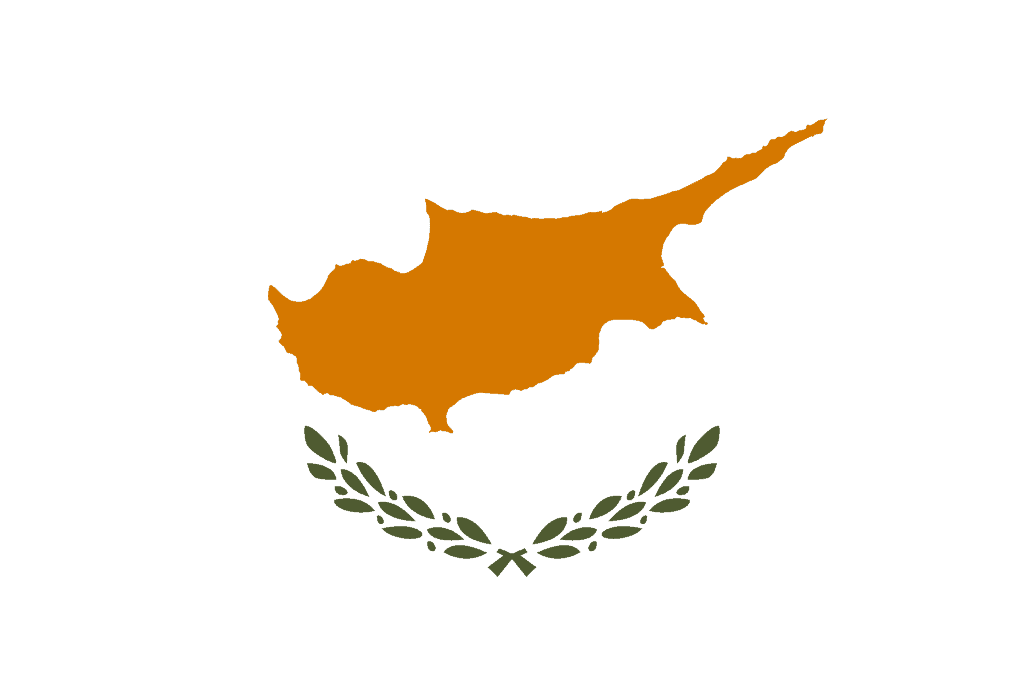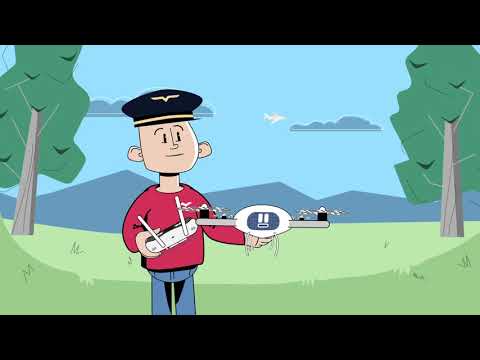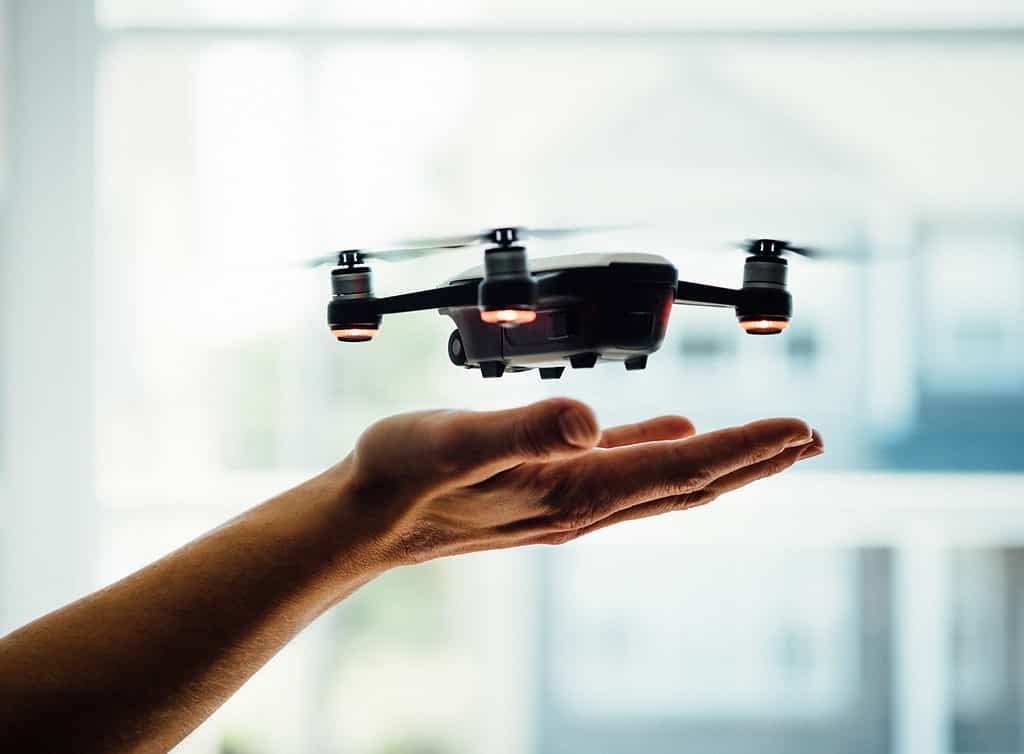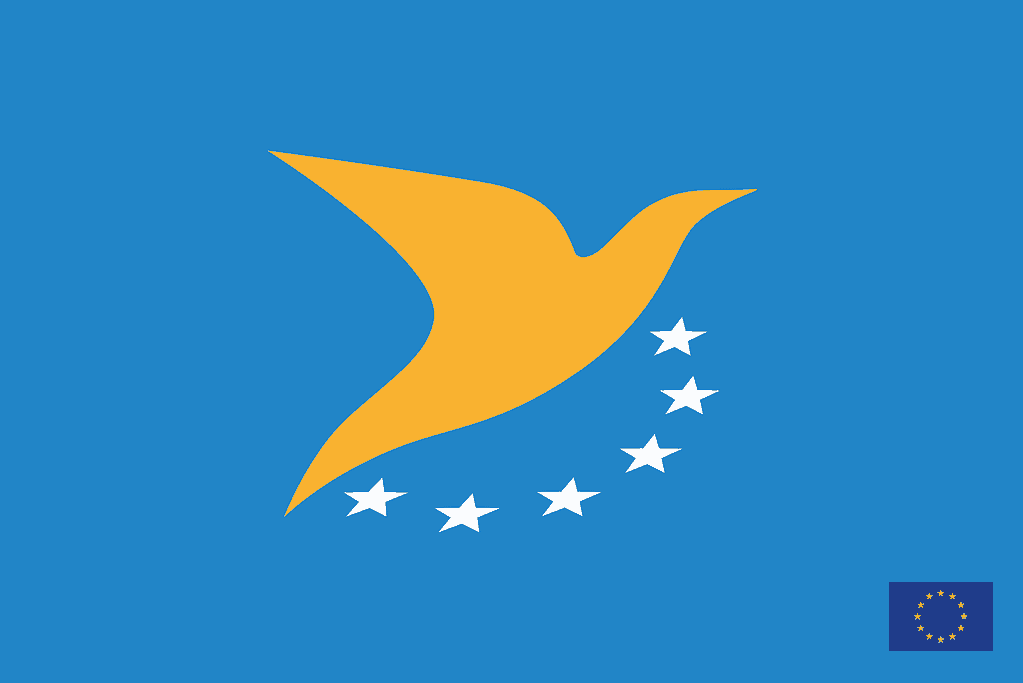Drone Laws in Cyprus
Hobbyist Drone Laws For Residents of Cyprus
Drone Operations in Cyprus are currently regulated.
- Hobbyist drone flights are allowed in Cyprus
- Hobbyist Cyprus drone pilot license is required
- Hobbyist Drone registration is required in Cyprus for hobbyists flying over 250g, or drone with a camera
- Drone Remote ID is generally required in Cyprus (except in some classes C0, C4 with no RID)
- Drone Insurance is not required but recommended for hobbyists’ drone operations in Cyprus
Read below for more details on Hobbyist Drone Laws in Cyprus and to find links to regulators and other credible sources!
Agencies Responsible for regulating drones in the Republic of Cyprus
Cyprus Department of Civil Aviation (DCA)
European Union Aviation Safety Agency (EASA)
For a full explanation of EASA regulations simplified, please read our explainer: The rules for drone flyers in the European Union (Europe Drone Laws Simplified)
UAS Laws – General rules for flying drones in Cyprus
The Cyprus agency responsible for drone safety, DCA, has provided several internet-accessible details on flying for fun or work. The highlights of Cyprus Drone Rules are outlined below. For more details, go to the link above.
Flying and operating drones in Cyprus are subject to European Union Regulation 2019/947. DCA supervises and implements Drone Rules Cyprus.
According to the level of risk involved, this new legal framework will introduce three categories of drone operations: Open, Specific, and Certified.
Are drones allowed in Cyprus?
According to DCA, drones are allowed in Cyprus, subject to DCA and EASA regulations. Read on for details.
Categories of Allowed Drone Flights in Cyprus:
Drone flights in Cyprus are allowed in three categories defined by the level of risk associated with drone flights or operations. Whether you are a resident of Cyprus or a visitor, you must operate within the limitations and follow the rules and procedures of the category in which your drone operation qualifies:
Open Category
Given the low level of risk, neither prior authorization by the competent authority nor a declaration by the drone operator is required. The drone’s total takeoff mass must be less than 25kg and be operated within a visual line of sight at a maximum altitude of 120m.
Specific Category
Considering the moderate level of risk involved, flights in this category require authorization before the operation. The permission is given considering the mitigation measures identified in an operational risk assessment, except in specific standard scenarios where an operator declaration is sufficient.
Certified Category
Given the inherent dangers, certification of the drone and a licensed remote pilot are required. If your drone can carry people, you fall under the Certified category!
The most common rules to know for flying a drone in Cyprus:
The ‘open’ category is the main reference for most leisure drone and low-risk commercial activities in European countries.
Subcategories of Open Category Drones
The ‘open’ category is, in turn, subdivided into three sub-categories – A1, A2, A3 — which may be summarised as follows:
- A1: fly over people but not over assemblies of people
- A2: fly close to people
- A3: fly far from people
Each subcategory comes with its own set of requirements. Therefore, in the ‘open’ category, it is important to identify the subcategory of operation your activities will fall under to determine which rules apply to you and the training the remote pilot needs to undertake.
If you comply with the relevant requirements of the subcategories (A1, A2, and A3), no operational authorization is required before starting a flight.
Conditions required to avoid authorization
The following conditions must be met:
- The drone operator has to be registered.
EU residents: Please register in the EU member state of your main residence (or principal place of business), and contact the Aviation Authority in your member state for further details.
Non-EU residents: Please register in the EU member state where you intend to operate your drone first. If the first drone operation will take place in Cyprus, please register as an operator here.
- All operated drones need sufficient insurance coverage.
Each country might have a different limit. For example, in Cyprus, you must ensure the coverage is at least 750,000 SDR, and your insurance is valid in Cyprus.
- The drone pilot needs proof of competency.
Depending on the subcategory of your drone operation (see table below), you need a certificate for A1/A3 and additionally A2.
- The drone must always be in a visual line of sight (VLOS).
- The drone is flown at no more than 120 meters above ground level.
- The drone must not carry any dangerous goods or drop any material.
Open Category Since January 1, 2024
Starting from January 1, 2024, operations in the open category must be conducted either with a drone bearing a C0, C1, C2, C3, or C4 class identification label or privately built or even without a class identification label, but only if placed on the market before December 31, 2023.
The markings look like this:
| C0 Drone Class Label | C1 Drone Class Label | C2 Drone Class Label | C3 Drone Class Label | C4 Drone Class Label |
|---|---|---|---|---|
If you are in the market, buy a drone with your desired marking. Choose one with the markings for the operations you will conduct.
For your benefit, here is a list of the currently available drones with class identification labels:
| Class | Company | Type | Model Name | Model Numbers |
|---|---|---|---|---|
| DJI | Multi-rotor | DJI Mini 2 SE DJI Mini 3, Mini 3 Pro, Mini 4 Pro Fly More Combo | MT2SD, MT2SDCE, MT3PDCE, MT3PD, MT3M3VDB, MT4MFVD | |
| DJI | Multi-rotor | AIR 3, DJI MAVIC 3 V2.0, Cine V2.0, Classic | EB3WBC , L2AA, L2PA, L2C | |
| AgEagle | Fixed-wing | SENSEFLY eBee | SENSEFLY EBEE X, GEO, AG, TAC PUBLIC SAFETY | |
| DJI | Multi-rotor | M30 EU, M3OT EU, DJI MAVIC 3E EU, 3T EU, ЗМ EU | M30 RTK EU, M30T RTK EU, M3E-EU, M3T-EU, M3M-EU | |
| Quantum-Systems | Fixed-wing | Trinity F90+ | R10 | |
| DJI | Multi-rotor | Matrice 350 RTK | M350 RTK |
Open Category From January 1, 2024
You will be able to operate them as described in the table below.
Be aware that ‘privately built’ means that you built the drone for your own personal use, so it was not purchased; it does not refer to UASs assembled from sets of parts placed on the market as a single, ready-to-assemble kit.
After 1 January 2024, if you have purchased a drone before that date without a class identification label, you will still be able to fly it in subcategory A1 if it weighs up to 250g or in subcategory A3 if it weighs up to 25kg.
| Drone Category | Operation Subcategory | Operational Restrictions | Drone Operator Registration | Remote Pilot Competence | Remote Pilot Minimum Age |
|---|---|---|---|---|---|
| Privately Built and Drones bought before 1/1/24 (under 250 g) | A1 (fly over people, but not assemblies) – can also fly in Subcategory A3 | May fly over uninvolved people (should be avoided when possible) No flight over assemblies of people | Not required unless a camera or sensor is on board and the drone is not a toy | No Training required | No minimum age |
| C0 (under 250 gram) | A1 (fly over people, but not assemblies) – can also fly in Subcategory A3 | No flight expected over uninvolved people (if it happens, overflight should be minimized) No flight over assemblies of people Maintain flight altitude below 120m above ground level | Not required unless a camera or sensor is on board and the drone is not a toy | No flight expected over uninvolved people (if it happens, overflight should be minimized) No flight over assemblies of people Maintain flight altitude below 120m above ground level | 16 years (some states can lower it to 12, but this will only apply to that state). No minimum age if the drone is a toy |
| C1 (under 900 gram) | A1 (fly over people, but not assemblies) – can also fly in Subcategory A3 | No flight expected over uninvolved people (if it happens, overflight should be minimised) No flight over assemblies of people Maintain flight altitude below 120m above ground level | Yes. Drone Registration is required | Read the user manual carefully Obtain a ‘Proof of completion for online training’ for A1/A3 ‘open’ subcategory by: Completing the online training Passing the online theoretical exam | 16 years (some states can lower it to 12, but this will only apply to that state |
| C2 (under 4 kg) | A2 (fly close to people) – can also fly in Subcategory A3 | Must not overfly uninvolved people Maintain a horizontal distance of 30 m from uninvolved people (can be reduced to 5 m if the low-speed function is activated) Maintain flight altitude below 120m above ground level | Yes. Drone Registration is required | Read the user manual carefully Obtain a ’Remote pilot certificate of competency’ for A2 ‘open’ subcategory by: Having a ‘Proof of completion for online training’ for A1/A3 ‘open’ subcategory Conducting and declare a practical self-training Passing an additional theoretical exam at the NAA or proctored online | 16 years (some states can lower it to 12, but this will only apply to that state) |
| C3 (under 25 kg) | A3 (fly far from people) | Must not overfly uninvolved people Maintain a horizontal distance of 150 m from uninvolved people and urban areas Maintain flight altitude below 120m above ground level. | Yes. Drone Registration is required | Read the user manual carefully Obtain a ‘Proof of completion for online training’ for the A1/A3 ‘open’ subcategory by: Completing the online training Passing the online theoretical exam | 16 years (some states can lower it to 12, but this will only apply to that state) |
| C4 (under 25 kg) | A3 (fly far from people) | Must not overfly uninvolved people Maintain a horizontal distance of 150 m from uninvolved people and urban areas. Maintain flight altitude below 120m above ground level. | Yes. Drone Registration is required | Read the user manual carefully Obtain a ‘Proof of completion for online training’ for the A1/A3 ‘open’ subcategory by: Completing the online training Passing the online theoretical exam | 16 years (some states can lower it to 12, but this will only apply to that state) |
| Privately Built and Drones bought before 1/1/24 (under 25 kg) | A3 (fly far from people) | Must not overfly uninvolved people Maintain a horizontal distance of 150 m from uninvolved people and urban areas. Maintain flight altitude below 120m above ground level. | Yes. Drone Registration is required | Read the user manual carefully Obtain a ‘Proof of completion for online training’ for the A1/A3 ‘open’ subcategory by: Completing the online training Passing the online theoretical exam | 16 years (some states can lower it to 12, but this will only apply to that state) |
From 1 January 2024, all drones operating in the specific category and all drones with class marks operating in the open category will be required to operate with an active and up-to-date remote identification system.
Drones with class identification label C1, C2, C3, C5 and C6 are already equipped with a remote identification system.
For details on the EASA Category as of January 2024, please see the Open Category Explainer.
Registration
According to European Regulation (EU) 2019/947, registration is mandatory for UAS operators (not for UAS themselves).
The UAS Pilot, also known as the Remote Pilot (RP), is the person physically behind the UAS flight controls. They are fully responsible for the safety of the flight throughout operations.
The UAS Operator is the person or company who oversees operations and gives flight instructions. This person or legal entity bears all responsibility for the operations of the drone (s) on their behalf. Very often, in the OPEN category and as individuals, the Pilot and the Operator are the same person.
How to register as a drone pilot or operator in Cyprus?
Registration can be carried out by any drone operator online. After successful registration, the operator receives a registration number, which must be affixed to all drones used (this can also be done easily by manually labeling the drone). The registration of individual devices is not required. A one-time registration by the operator of the drones is sufficient. Registration costs 32.40 euros and is valid for 3 years.
Register in Cyprus as a drone operator
This UAS operator registration number is valid for one year and must be renewed periodically following the same procedure. The operator always uses the same number unless the latter is permanently deregistered from the register.
Who should register?
As part of the OPEN category, registration is compulsory for operators:
- UAS that has a mass of 250 g or more;
- UAS that has a mass of less than 250 g but:
- can operate at speeds greater than 90km / h
- are equipped with a camera or a microphone, if these UAS are NOT toys *
* A UAS is a toy when a manufacturer intends it for children under 14 and meets the minimum safety criteria required to be so named. Compliance with these standards naturally limits the capabilities of the UAS (size, weight, non-dangerous spare parts, no powerful motor, etc.): see Directive 2009/48 / EC of 18 June 2009 on the safety of toys
Under the SPECIFIC category, registration is compulsory for all operators.
Natural persons can only register in the country where they reside.
Legal persons must register in the country where their principal place of business is located.
Registration can only be done in one Member State at a time.
Notes for recreational drone pilots flying for fun in Cyprus
The most common drone flights you will undertake will most likely be covered by the Open Category described above.
For more details on the Open Category, please see our Open Category Explainer.
If your flights cannot be operated within the limitations of the Open Category, you may need to follow the Specific Category or Certified Category Rules.
For more details on the Specific Category, please see our Specific Category Explainer.
The Certified Category is complicated and aimed at the most sophisticated drone operators. We recommend you start at this EASA page.
Drone Laws For Visitors To Cyprus
Drone Operations in Cyprus are currently regulated.
- Foreign visitor drone flights are allowed in Cyprus
- Foreign visitor drone pilot license is required
- Drone registration is required in Cyprus for visitors/tourists (unless previously registered in EASA)
- Drone Remote ID is generally required in Cyprus (except in some classes C0, C4 with no RID)
- Drone Insurance is not required but recommended for tourist drone operations in Cyprus
Read below for more details on Drone Laws in Cyprus for Visitors (Tourists) and to find links to regulators and other credible sources!
Note for foreign drone operators visiting Cyprus
Whether you are a resident of Cyprus or a visitor, you must operate within the limitations and follow the rules and procedures of the category in which your drone operation qualifies above.
EU Resident Visitors (Countries following EASA regulations)
- If you are previously registered or have a remote pilot certificate in your home country or another EASA member state, then your registration and RPC are valid in Cyprus. Follow the operational rules for your category of drone flight.
- If you have not been registered or have a remote pilot certificate previously, you will need to do so in your home country or Cyprus before conducting flights (depending on the category of drone flight you wish to undertake).
Operator Registration (Non-EU Residents)
- If you are coming from a non-EU country and this is the first time you will fly your drone in an EU country, you MUST register as an Operator into the DCA systems at the registration site linked here.
- Upon registration, you will receive a unique Operator Registration number, which you MUST attach to your drone. If you have several drones, the same number must be attached to all of them.
- You are not allowed to fly in NO FLY ZONES, and you must keep a minimum of 8km distance from airports/heliports.
- If you have already conducted operations in another EU country before going to Cyprus, you must not register again. You always register to the first non-EU country where you have conducted flights.
- To register successfully, you must pay the registration fee, which is €15. Method of payment is only by VISA card
Remote Pilot Certificate (Non-EU Residents)
- If you want to fly your drone in Cyprus and live in a non-EU country, you must hold a Remote Pilot Certificate from an EU country.
- You can get the A1/A3 Certificate by registering with the online Remote Pilot School.
- The online training and exam are required for those who want to fly a drone in the ‘Open’ category in subcategories A1/A3.
- The pass mark is 75%, and you have three attempts to pass.
- Once you pass your exam, you will receive your remote pilot certificate. Its validity will be five years.
- You must have your Remote Pilot Certificate when you plan to perform drone operations in Cyprus and present it when the authorities ask.
- The fee for the online training and exam is €15. Method of payment is only by VISA card
Commercial Drone Laws For Residents of Cyprus
Drone Operations in Cyprus are currently regulated.
- Commercial drone flights are allowed in Cyprus
- Commercial Cyprus drone pilot license is required
- Commercial Drone registration is required in Cyprus for commercial drone operators
- Drone Remote ID is generally required in Cyprus (except in some classes C0, C4 with no RID)
- Drone Insurance is required for commercial drone operations in Cyprus
Read below for more details on Commercial Drone Laws in Cyprus and to find links to regulators and other credible sources!
Notes for operating Commercial Drone Services in Cyprus
The most common drone flights you will undertake will most likely be covered by the Open Category described above.
For more details on the Open Category, please see our Open Category Explainer.
If your flights cannot be operated within the limitations of the Open Category, you may need to follow the Specific Category or Certified Category Rules.
For more details on the Specific Category, please see our Specific Category Explainer.
The Certified Category is complicated and aimed at the most sophisticated drone operators. We recommend you start at this EASA page.
Drone Insurance Cyprus – Compulsory for Commercial
Attention: For the operation of a drone in Cyprus, insurance is recommended for hobbyists but required for commercial drone operations. Your insurance coverage must be at least 750,000 special drawing rights (SDRs).
What you must know about Cyprus No Fly Zones or No Drone Zones
You need to know if you can operate your drone. Under what limitations? Will you need flight authorizations? And, if so, how do you get those authorizations?
We encourage you to read our explainer. It provides more details here: Explainer – What You Must Know About No Fly Zones or No Drone Zones
Drone Laws For Government Drone Operators in Cyprus
Drone Operations in Cyprus are currently regulated.
- Government drone flights are allowed in Cyprus
- Government drone pilot license is required
- Drone registration is required in Cyprus for Government operations
- Drone Remote ID is generally required in Cyprus (except in some classes C0, C4 with no RID)
- Drone Insurance is not required for Government drone operations in Cyprus
Read below for more details on Drone Laws Cyprus for Government Drone Operations and to find links to regulators and other credible sources!
Useful published information on flying drones in Cyprus
- Where you are allowed to fly a drone in Cyprus
- Register in Cyprus as a drone operator
- Online drone pilot training and tests in Cyprus
- Apply for an authorization to fly in Cyprus
Here is a promotional video by the DCA highlighting the new regulations for flying drones in Cyprus…
Authoritative Sources of Information on Cyprus Drone Laws
We will attempt to keep an updated list of online authoritative links to regulators and other official websites here:
- Drone Regulator Website: Cyprus Department of Civil Aviation (DCA) and European Union Aviation Safety Agency (EASA)
- Link To SUAS Laws: N/A
- No Fly Zone Maps/Locations: Where you are allowed to fly a drone – Drone Map Cyprus
- UAV Registration Site: Register in Cyprus as a drone operator
- Drone Operator Licensing Site: Online drone pilot training and tests in Cyprus
- Others: Apply for an authorization to fly in Cyprus
NOTE: This page is about the Regulation of Unmanned Aerial Vehicles: Small Unmanned Aerial Systems (SUAS), Small UAS, Remote Piloted Aerial Systems (RPAS), unmanned aerial vehicle (UAV), Unmanned Aerial System (UAS), and drone are interchangeable terms unless specified. Model Aircraft, toy, remote-controlled, and RC aircraft may be covered by the same regulations unless specified.
Find out why
We think you must use a Drone Preflight Checklist
And a Drone Post-flight checklist
Free Drone Flight Checklist PDF
This Drone Flight Checklist is better than others.
It’s free!
It includes both the preflight checklist and post-flight checklist
It’s an easy-to-use printable PDF that covers all your bases.
Traveling with a Drone?
Click here to read our Comprehensive Guide For Traveling With A Drone.
LET US CONNECT YOU
Calling All Drone Service Companies, Trainers, Tour Guides with Drone Experience
Contact Us with your website, email address and phone number using our Contact Page
We want to share your information with visitors who look for credible providers that follow the rules.
NOW IT’S YOUR TURN










Leave a Comment